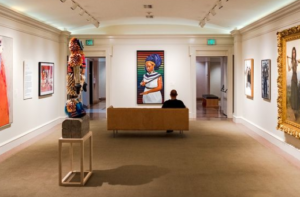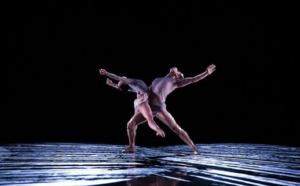Land Acknowledgement
I want to acknowledge the land I live on in Stillwater Oklahoma is stolen land from the Kiikaapoi (Kickapoo) Nation. I am grateful for the chance to live and operate on these lands and want to extend respect and recognition of their true ownership of this land. I want to also acknowledge that this statement does not undo the years of continued harm on these native lands, the native lands through-out the nation, the ancestors that once were and those native peoples that are here now.
Stillwater, Oklahoma– Many arts organizations have been able to use their adaptive skills to navigate normal unknown funding uncertainties. However, the COVID-19 pandemic has proven there is a limit on the ability to guess the future, especially when you do not know when the future is going to begin. The American Alliance of Museums warned earlier that one out of every three museums face closing their doors forever, based on a survey of 750 participants. This pandemic has forced every organization to suspend their 2020-2021 programming calendars, creating massive amounts of losses. In Delaware, 65 organizations have pandemic closure expenses totaling to 5.6 million dollars. As much of the large programs that happen throughout and organizations season is cancelled, so is their funding. When the time comes for reopening, it will be months to years before the the operations of these organizations are fully running.
Many organizations need millions of dollars to reopen its door to full capacity and are having to shrink staff to the bare minimum. While several organizations have adapted to this challenging time, many cannot afford to do so. The cost of doing soft reopening will outweigh the revenue leaving upfront cost unpaid for. If this trend continues, in a poll by the National Independent Venue Association warned that without government aid over ninety percent of member-based organizations could close. This can show disastrous when performing arts accounted for $900 billion in economic activity. To break it down further a study by the Chicago Loop Alliance concluded for every single dollar spent on a ticket for the arts, saw $12 dollars going back to the community. This can be purchases at restaurants, hotels, local shops and more.
need millions of dollars to reopen its door to full capacity and are having to shrink staff to the bare minimum. While several organizations have adapted to this challenging time, many cannot afford to do so. The cost of doing soft reopening will outweigh the revenue leaving upfront cost unpaid for. If this trend continues, in a poll by the National Independent Venue Association warned that without government aid over ninety percent of member-based organizations could close. This can show disastrous when performing arts accounted for $900 billion in economic activity. To break it down further a study by the Chicago Loop Alliance concluded for every single dollar spent on a ticket for the arts, saw $12 dollars going back to the community. This can be purchases at restaurants, hotels, local shops and more.
 A good example is to always have your arts organization near a coffee shop. The arts have always been able to see the light even when it gets gloomy around them, however, this time it can go beyond recovery. The arts, performing arts, fine arts, and all they do benefits not only the patrons but also those within the community. In this time many of the programs that were once planned in person were able to make a transition to an online platform. By doing this organizations have gotten more exposure to help sustain their revenue during the pandemic. During the upcoming holiday season, be engaged with your local arts communities to help them see where the future begins again.
A good example is to always have your arts organization near a coffee shop. The arts have always been able to see the light even when it gets gloomy around them, however, this time it can go beyond recovery. The arts, performing arts, fine arts, and all they do benefits not only the patrons but also those within the community. In this time many of the programs that were once planned in person were able to make a transition to an online platform. By doing this organizations have gotten more exposure to help sustain their revenue during the pandemic. During the upcoming holiday season, be engaged with your local arts communities to help them see where the future begins again.
Work Cited
Ali Wambold, Charles Segars. “Opinion | Performing Arts Are near the Point of No Return. Conservatives Should Rescue Them.” The Washington Post, WP Company, 2 Oct. 2020, www.washingtonpost.com/opinions/2020/10/02/performing-arts-are-near-point-no-return-conservatives-should-rescue-them/.
“Arts Organizations Take Different Paths to Surviving the Pandemic – DBT.” Delaware Business Times, 14 Aug. 2020, delawarebusinesstimes.com/news/arts-organizations-surviving-the-pandemic/.
Philbrook Museum. “Philbrook Gallery Room.” Instagram-Philbrook Museum, 2020, www.instagram.com/philbrookmuseum/.
Tulsa Ballet. “Creations Reimagined, Tulsa Ballet.” Instagram-Tulsa Ballet, 2020, www.instagram.com/tulsaballet/.
Rachael Driver
She/Her
DSF Digital Internship Participant
Oklahoma State University
B.A. Arts Administration, 2021
